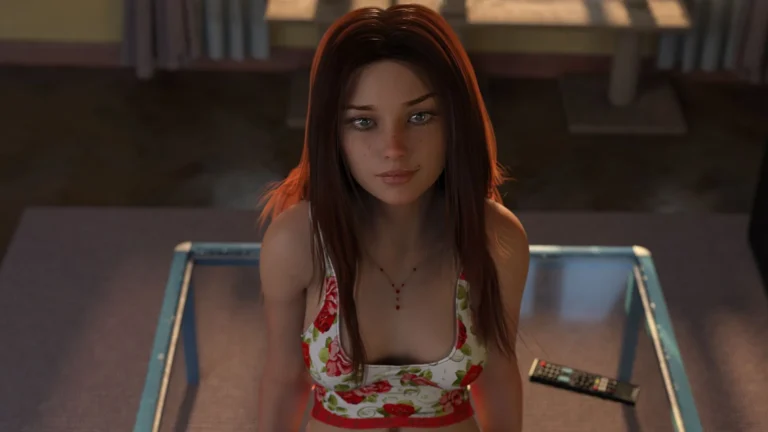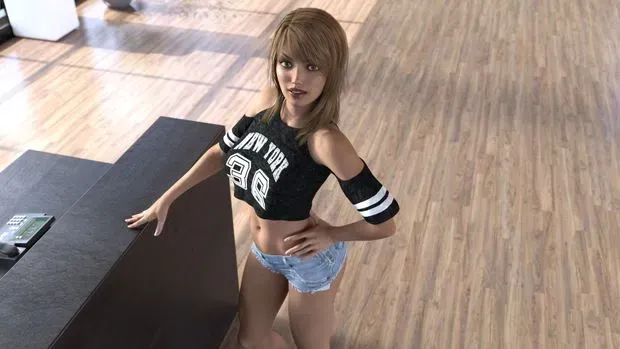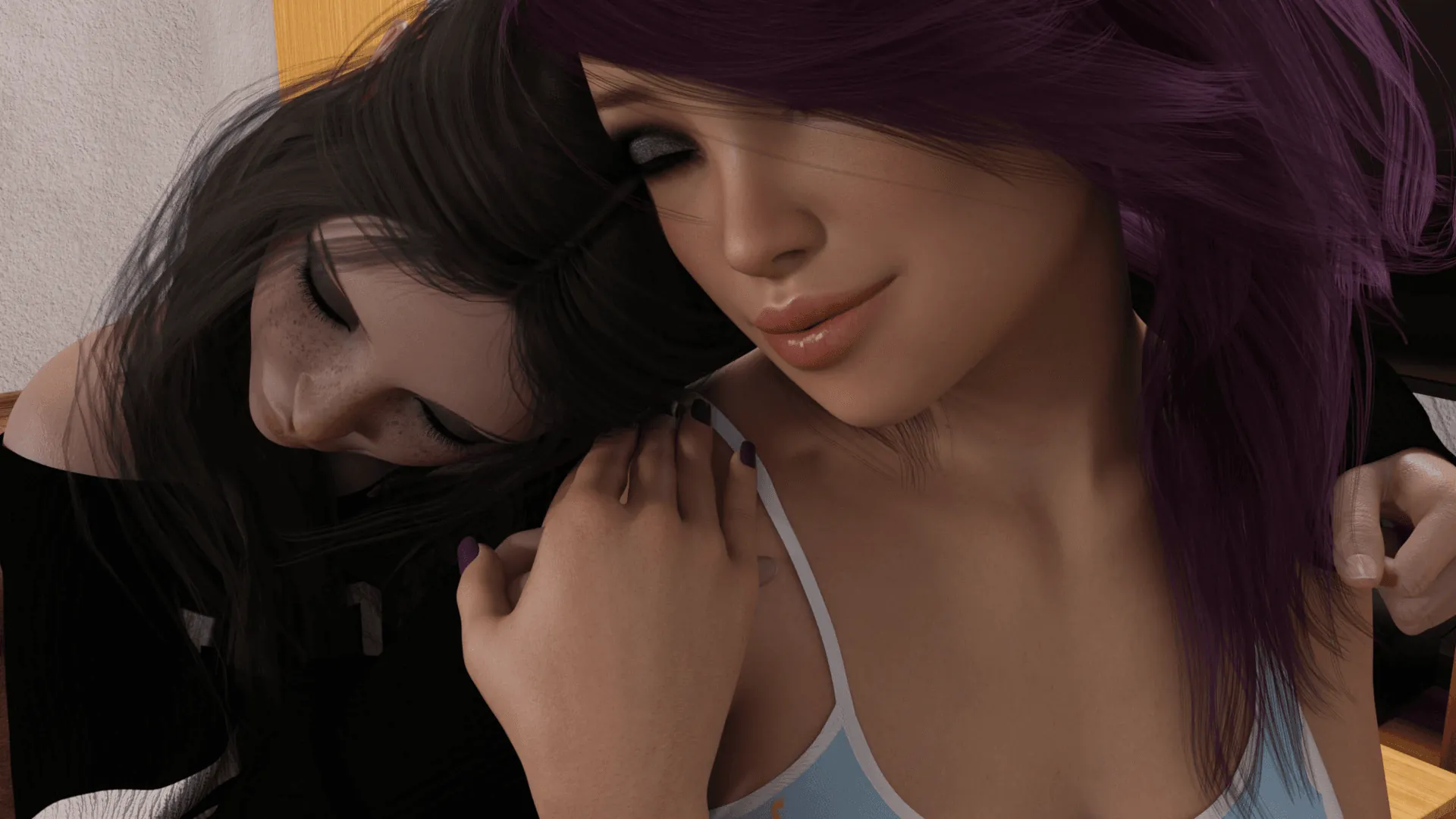
Summer’s Gone
Play Summer’s Gone
Summer’s Gone review
A Journey of Healing and Love in a Visual Novel
In the realm of interactive visual novels, ‘Summer’s Gone’ stands out as a poignant exploration of healing, hope, and love. This game delves into the complexities of mental health, ambition, and relationships, offering players a deeply personal journey. With its emphasis on character development and player choice, ‘Summer’s Gone’ promises an immersive experience that resonates with those seeking stories of overcoming adversity.
Exploring the World of ‘Summer’s Gone’
The Main Character’s Journey
Picture this: you’re a high school basketball star 🏀 with a scholarship to a top college, and suddenly… poof. The spotlight fades. The crowd’s cheers turn to silence. That’s where Summer’s Gone drops you—into the shoes of a protagonist whose life unravels faster than a poorly tied shoelace. 🎮 This visual novel doesn’t just tell a story—it drags you through the emotional mud of loss, regret, and the slow climb back to self-worth.
The game’s hero isn’t your typical “chosen one.” They’re messy, haunted by past mistakes, and wrestling with a mental health crisis that feels painfully relatable. What makes their journey gripping? You’re not just watching them heal—you’re steering their recovery. Every dialogue choice, every relationship you nurture (or sabotage), shapes their path. It’s like holding a mirror to your own struggles with ambition and identity.
| Past Glory | Present Reality |
|---|---|
| Star athlete with a bright future | Struggling student avoiding eye contact |
| Confident, charismatic leader | Withdrawn, battling inner demons |
Why does this resonate? Because Summer’s Gone doesn’t sugarcoat the messiness of growth. One minute you’re fist-pumping over a small victory 🎉, the next you’re gut-punched by a flashback that makes you question every life choice. It’s interactive storytelling at its rawest—and most human.
Themes of Mental Health and Isolation
Let’s get real: most games treat mental health like a side quest. Summer’s Gone throws it center stage. 🌟 The protagonist’s isolation isn’t just a plot device—it’s a visceral, suffocating force. You’ll feel the weight of empty dorm rooms, the dread of unread texts, and the awkwardness of forced small talk. 😶
But here’s the magic: the game doesn’t drown you in despair. Instead, it hands you tools to rebuild. Through subtle character development, you’ll uncover coping mechanisms that mirror real-world strategies:
– Journaling to untangle chaotic thoughts 📖
– Reconnecting with old passions (hello, dusty basketball)
– Learning to accept help (even when it’s offered by someone annoying)
| Isolation Traps | Breaking Free |
|---|---|
| Skipping classes to hide in bed | Joining a study group |
| Ghosting friends | Apologizing over coffee |
What’s revolutionary is how the ambition and love themes collide. Your character’s drive to “fix” their life often clashes with their need to connect. Do you chase academic redemption at all costs? Or risk vulnerability for a chance at real intimacy? The game forces you to confront that balance—and there’s no “perfect” answer.
The Role of Interpersonal Connections
Here’s the secret sauce of Summer’s Gone: every relationship is a lifeline. 💞 From the childhood friend who won’t quit on you to the enigmatic classmate with their own baggage, these bonds aren’t just filler—they’re the scaffolding for healing.
Take Nami, the sharp-tongued artist who calls you out on your BS. 🎨 At first, she’s all eye rolls and sarcasm. But dig deeper, and you’ll find her story mirrors your own struggles with self-doubt. The game’s player choice impact shines here:
Example: When Nami shares her sketchbook, you can either:
– Mock her work → She stops sharing art permanently
– Ask thoughtful questions → Unlock scenes where you collaborate on murals
– Stay silent → She assumes you don’t care and grows distant
These moments aren’t just “good vs. evil” picks—they’re nuanced reflections of how we show up (or bail) for others. The interactive storytelling makes you feel the consequences of your emotional availability (or lack thereof).
| Connection Type | Healing Power |
|---|---|
| Rebuilding family ties | Unlocks backstory & closure |
| Romantic relationships | Challenges fear of intimacy |
And let’s not forget the basketball subplot! 🏀 Reconnecting with the sport isn’t about reliving glory days—it’s about rediscovering joy in movement. When you finally nail that three-pointer during a pickup game (after botching it for weeks), it’s a metaphor for progress: messy, unpredictable, but wildly rewarding.
Summer’s Gone isn’t just a game—it’s a masterclass in mental health in games done right. By blending ambition and love themes with gut-punching character development, it proves that visual novels can be more than pretty pictures and flirty dialogue. They can be lifelines for anyone who’s ever felt stuck in their own head. 🧠💥 So grab your controller (or mouse)—your journey from isolation to connection starts now.
In conclusion, ‘Summer’s Gone’ offers a compelling narrative that explores themes of healing, hope, and love, making it a standout in the visual novel genre. With its emphasis on player choice and character development, it provides an immersive experience that resonates deeply with players. As the series continues to evolve, fans can look forward to even more engaging storylines and characters.




